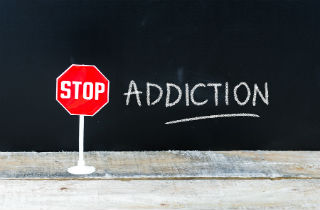AA is not a fit for everyone.
Despite appearances to the contrary, there are alternatives to Alcoholics Anonymous and the 12 step methodology. Not all AA groups are created equally and critique of the AA lifestyle may be generalized. Also, AA has proved very effective for some (how well does AA work?) and for this it must be applauded. Still, some of the criticisms of the A.A. approach to sobriety include:
1. AA focus on spirituality – Many recovering alcoholics struggle to grasp the concept of belief in a higher power, a ‘prerequisite’ to recovery with Alcoholics Anonymous.
2. AA conformity – Some critics sense a cult-like atmosphere at AA meetings; it is a charge that has been leveled against AA over the years. There is no doubt that there are elements to AA that suggest it is a cult. However, the cult of AA theory is far too much of a simplification of the 12 step way. Yet, it is enough to lead people to reject it.
3. AA dogmatism – AA members regard their 12 steps as scripture and there should be no deviation from them. And the AA founders message has become religion to some.The shame, guilt and humility and belief in a higher power that are the pillars of recovery with the 12 steps are seen as negative by many but anyone who points this out is labeled as having a ‘character defect’.
5 options to 12 step groups
LifeRing
LifeRing is a secular support group which focuses, as AA does, on abstinence as the only way to recover from alcohol dependence. Its basic philosophy can be summed up by the three ‘S’s’: Sobriety, Secularity and Self-Help. Its main strength lies in its online recovery community, which is said to be the largest presence of recovering alcoholics on the web.
Rational Recovery
Lastly, and most controversially, we have Rational Recovery. This is, unlike all the other options, not free. Indeed it is quite expensive. It teaches that we all have an addictive voice and a sober voice. When the addictive voice is in the ascendancy we, obviously, have problems with dependence. AVRT or Addictive Voice Recognition Therapy shows addicts of all types how they can quieten their addictive voice and overcome their addictions. The AVRT workshop that gives you these skills is what you have to pay for. There are no support meetings or the like as the workshop gives you all the tools you need.
Secular Organization For Sobriety (SOS)
As with the alternatives to AA above, SOS is secular in nature. It has no plan or steps that members must follow, has no sponsor/mentor system, has a more open and flexible meeting format and, most importantly, places great emphasis on the scientific study of alcohol dependence. This is in the belief that a full understanding of his/her condition will give the recovering alcoholic a much better chance in overcoming it.
SMART Recovery
SMART Recovery differs from AA in that it believes the answer to alcoholism lies in the world of science and reason not spirituality. Empowerment and will power are essential in overcoming addiction as opposed to a higher power. At SMART’S core is the concept that there are seven stages of change (in order): Pre-contemplation, contemplation, determination/preparation, action, maintenance, relapse, and termination. The last stage, termination, refers to the point at which the addiction is, to all intents and purposes beaten and an individual feels he/she no longer needs support.
Women For Sobriety
Alcoholics Anonymous is often said to be male-centric. Women For Sobriety was set up by Jean Kirkpatrick in 1975 to address this. WFS differs from AA in three main ways: The power to defeat alcohol dependence does not come from outside oneself (e.g. a higher power), rather it comes from within, onlywomen can be WFS members and that, although on the physiological level alcoholism is the same for both sexes, on the psychological one it is not hence the need for a gender specific group.








